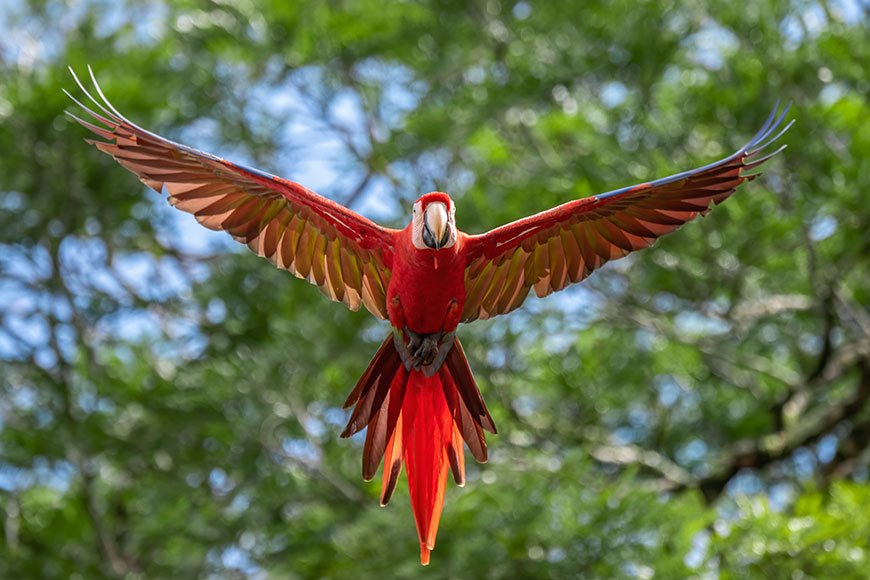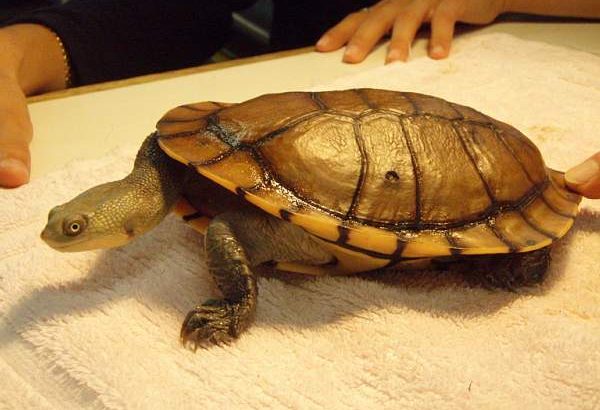Bird physiology is the study of the physical and biochemical functions of birds, including their anatomy, physiology, behaviour, and evolution. In this article, we explore the unique physiological features of birds and how they differ from other animals.
Respiratory System
One of the most unique features of bird physiology is their respiratory system, which is adapted for flight. Instead of lungs, birds have air sacs that are connected to the trachea, or windpipe. Unlike the lungs of mammals, which are used primarily for gas exchange, the air sacs of birds play a much larger role in the respiratory process. Air is inhaled into the air sacs and then exhaled back out through the same route, creating a continuous flow of fresh air through the respiratory system. This allows birds to exchange gases more efficiently and maintain a high metabolic rate, which is essential for their ability to fly.
The air sacs of birds are also thought to play a role in buoyancy and flight. Because they are connected to the bones and muscles of the body, the expansion and contraction of the air sacs can help to adjust the density of the bird’s body, allowing it to move more easily through the air. Overall, the air sacs of birds are an important part of their respiratory system and play a crucial role in their ability to breathe, fly, and maintain their body weight.
What are the causes of air sac problems in birds?
There are several potential causes of air sac problems in birds, including:
- Infections: Bacterial, fungal, and viral infections can all affect the air sacs and lead to inflammation and swelling.
- Trauma: Physical trauma, such as a blow to the chest or being stepped on, can damage the air sacs and cause breathing difficulties.
- Tumours: Air sac tumours, both benign and malignant, can develop in birds and obstruct the flow of air through the respiratory system.
- Foreign bodies: Ingesting foreign objects, such as seeds or small toys, can cause blockages in the air sacs and lead to respiratory problems.
- Nutritional deficiencies: A diet lacking in certain nutrients, such as vitamins A and E, can lead to degeneration of the air sacs and respiratory problems.
- Environmental factors: Exposure to toxins, such as smoke or chemicals, can irritate the air sacs and cause inflammation.
If a bird is experiencing air sac problems, it is important to have it evaluated by an avian exotic vet as soon as possible in order to determine the cause and appropriate treatment.
Circulatory System
Birds have a highly efficient circulatory system that is designed to support their high metabolic rate and active lifestyle. Their circulatory system is characterised by the presence of a four-chambered heart, which is divided into the left and right atria and the left and right ventricles. The four-chambered heart allows birds to efficiently pump oxygenated blood to the rest of the body, while simultaneously separating oxygenated and deoxygenated blood to ensure that oxygen is efficiently distributed throughout the body.
In addition to the four-chambered heart, birds also have a well-developed network of blood vessels that includes arteries, veins, and capillaries. These blood vessels help to distribute oxygen and nutrients throughout the body and remove waste products from the tissues. The high pressure of the circulatory system allows birds to maintain a stable body temperature, even in extreme temperatures, which is crucial for their survival in a wide range of environments. This ability to regulate their body temperature is one of the key adaptations that has allowed birds to thrive in a variety of ecosystems around the world.
Vision and Hearing
Birds are known for their keen senses, which are finely tuned to support their active lifestyles and help them to navigate and survive in their environments. One of the most highly developed senses in birds is their vision, which is often much more acute than that of humans. Many birds have eyes that are large in relation to their body size, which allows them to gather more light and achieve greater visual acuity. Some species of birds, such as eagles, have eyes that are up to three times more sensitive than those of humans, allowing them to see small prey or potential predators from great distances.
In addition to their excellent vision, birds also have a highly developed sense of hearing. Many species of birds have ears that are finely tuned to pick up a wide range of frequencies, including some that are beyond the range of human hearing. This acute sense of hearing allows birds to detect predators, locate mates, and communicate with one another over long distances. Some species of birds, such as owls, use their excellent hearing to locate prey, even in complete darkness.
Skeletal System
Another unique aspect of bird physiology is their ability to fly. Birds have a lightweight skeleton, with bones that are hollow and filled with air spaces. This allows them to be lighter and more agile in the air. In addition, birds have strong muscles and a unique system of feathers that allows them to generate lift and control their flight.
Overall, the physiology of birds is highly adapted for their unique lifestyle and behaviours, including flight, foraging, and communication. Understanding the physiological processes of birds can help us to better understand and care for these fascinating and beautiful animals. If you would like to learn more about bird physiology, contact your local exotic avian veterinarian who will be happy to educate you.
The specialised physiology of birds requires a thorough understanding of their unique needs, making it essential to seek care from an experienced bird & exotics veterinarian for your pet bird.
FAQs
Birds have a highly efficient respiratory system that allows them to get enough oxygen to power their flight. They have a series of small tubes called bronchioles that branch off from their trachea and deliver air to their tiny air sacs. This allows birds to exchange gases quickly and efficiently while they are in flight.
If you have an exotic animal, finding a qualified veterinarian to care for your pet can be a challenge. You can ask your regular veterinarian if they have any recommendations or check with local animal shelters or rescue groups. Another option is to search online for an exotic vet clinic that specialises in caring for exotic animals.





